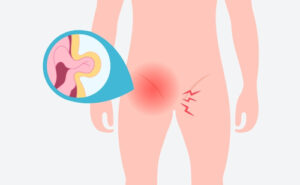
Bowel cancer is the second highest cause of cancer deaths in New Zealand. Colon cancer is common type of bowel cancer in New Zealand. Colon cancer may not be easily identified in the early stages, so being aware and finding it early saves lives. This ZOOM Pharmacy guide explains what colon cancer is, who is at risk, symptoms, how screening works, and how to lower your risk in New Zealand.

Colon cancer occurs in your colon. The colon is the longest part of the large intestine. It is a type of bowel cancer or more specifically colorectal cancer, which can occur in either the colon or the rectum (rectal cancer).
Colon cancer typically begins as small polyps that form inside the colon on the bowel lining. A polyp is a small clump of cells; most colon polyps are harmless. However, these polyps can slowly change and turn into cancer over time.
The rate of bowel cancer in New Zealand is very high, with over 3,000 New Zealanders diagnosed every year. It is estimated that 1 in every 18 New Zealanders will develop bowel cancer in their lifetime.
Men are slightly more likely to develop colon cancer than females. It typically affects people aged 50 years and older – however the rate of colon cancer in people aged 20 to 49 is increasing.
Don’t ignore persistent bowel changes. The following symptoms should be addressed with a healthcare professional if they persist for more than a couple of weeks.
Being aware early is the best protection against colon cancer. If you notice lasting symptoms that worry you – at any age – It’s important to get checked by your doctor as soon as possible. Read more about bowel cancer symptoms here.
There are both non-modifiable and modifiable risk factors for colon cancer. Non-modifiable risk factors that may increase your risk of colon cancer include:
Modifiable or lifestyle risk factors for colon cancer include:
While some risk factors for colon cancer are unavoidable (e.g., age or genes), making changes in everyday life can reduce your risk of colon cancer.
New Zealand’s National Bowel Screening Programme is a free programme to help detect bowel cancer at an early stage. Bowel cancer often has no symptoms, so this testing helps find it early, when it often can be treated successfully. Here are the key details:
A positive test result does not mean you have cancer, it is detecting traces of blood in your poo. Small amounts of blood in your poo can often be due to polyps or haemorroids.
You’ll be contacted by your healthcare provider to discuss your results and next steps. If your test is positive, you will likely need a colonoscopy. This is where a small camera is used to look at the lining of your large bowel (colon). A biopsy can be taken, and small polyps can be removed.
Treatments for colon cancer will depend on the stage of the cancer, its location, and whether it has spread. Treatments for colon cancer include:
Before starting any treatment, make sure you have discussed and understood your treatment plan. Asking for a second (or third, etc.) opinion is always something to consider too.
Bowel Cancer New Zealand (external link)
Bowel Screening (external link) Health New Zealand
Bowel Cancer (external link) Healthify
Written by Paul Taylor
Paul Taylor is a New Zealand–based healthcare content writer with 5+ years’ experience creating patient friendly articles for online pharmacies and health platforms. He specialises in accessible condition guides, prescription FAQs, OTC advice, and health & wellbeing tips, translating complex medicines or health condition information into clear, actionable content. Paul collaborates with the ZOOM Pharmacy clinical team and bases every article on authoritative sources, peer reviewed journals and national clinical guidelines to ensure evidence based, up to date content. His goal is to help readers feel empowered to make informed decisions about their medicines and wellbeing. This content is general information only and does not replace professional medical advice.